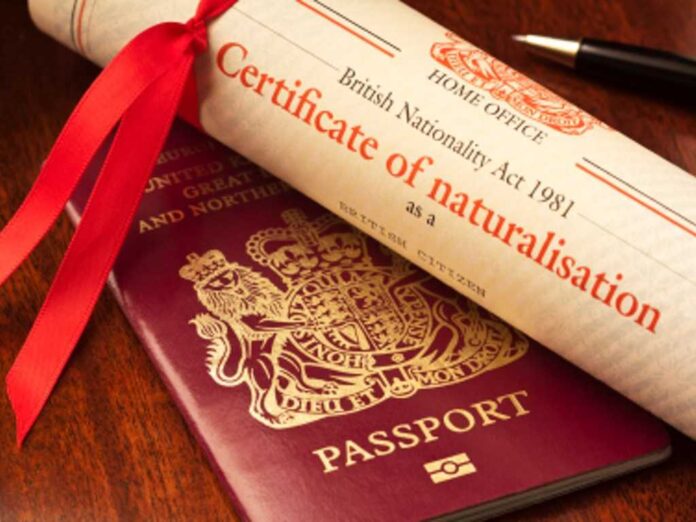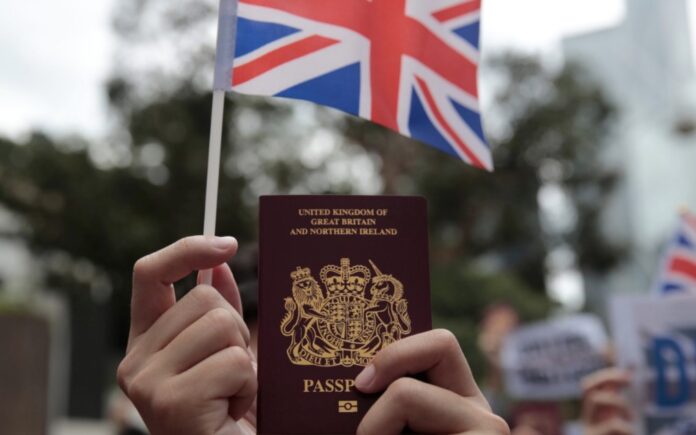
There are a few interesting facts about British citizenship that are worth noting.
British citizens also have the right to live and work in any country within the European Union. And, if you’re a British citizen married to a foreign national, your spouse can apply for British citizenship.
Additionally, to become a British citizen, you must first be a legal resident of the United Kingdom. You also need to meet certain requirements, such as being of good character, having sufficient knowledge of English, and passing a “Life in the UK” test.
If you are planning to take the Life in the UK test, you need to study the related guides as well as practice mock tests. This website might just be the help you are looking for as it offers online mock tests for free.
British citizenship comes with a lot of rights and privileges. For example, British citizens can vote in all UK elections, work in the UK without a visa, and live in the UK indefinitely. However, there are some things about British citizenship that not everyone knows. Let’s take a look at the interesting facts about British Citizenship.
The British Nationality Act of 1981

The British Nationality Act of 1981 created the modern concept of British citizenship. Before this, there were different categories of British nationals with varying rights and duties. The 1981 Act created the status of a British citizen, which consolidates all the previous categories of British nationality into one. To become a British citizen, one must either be born in the United Kingdom or a qualifying colony, be naturalized, or register as one.
There are a few requirements for naturalization. One must have lived in the UK for at least five years, have no criminal record, and demonstrate their knowledge of English and life in the UK through a test or an interview.
You Were Born Before 1983
You might be surprised to learn that if your birth year is before 1983, you may already be a British citizen. If your mother was a British citizen before your birth, and you didn’t take steps to renounce your citizenship when you turned 18, then you’re still a British citizen. You can check if you’re eligible by contacting the Home Office.
Moreover, if you have a grandparent born in the UK, you may be eligible for citizenship by descent. This means that you can apply for citizenship even if your birthplace is outside of the UK. There are some restrictions and requirements, so it’s best to check with the Home Office to see if you are eligible for it.
You Might Not be a British Citizen If…

You might not be a British citizen if your birth year is after 1983 and your mother was not a British citizen or permanent resident in the UK. You might also not be a British citizen if your birthplace is in another country and don’t have a grandparent born in the UK. These are just a couple of examples of what could prevent someone from being a British citizen.
If you’re not sure whether or not you’re a British citizen, there are a few ways to find out. You can contact the Home Office to ask about your status or take a ‘British citizenship test’.
You’re a Commonwealth Citizen
Did you know that if you’re a citizen of a Commonwealth country, you’re also a British citizen? This means that citizens of countries such as Canada, Australia, and India all have the right to live and work in the UK. There are also some special requirements for Commonwealth citizens who want to apply for British citizenship, such as being resident in the UK for five years and passing the ‘Life in the UK’ test.
If you were born in a British Overseas Territory, such as Bermuda or the Falkland Islands, you’re classed as a British citizen (Overseas Territories). This means you can apply for British citizenship – including coming up to and including birth.
You’re From the Channel Islands or the Isle of Man
1.2 million people in the UK have a British passport but aren’t British citizens. If you were born in the Channel Islands or the Isle of Man, you’re not automatically a British citizen.

Citizenship laws
Citizenship laws can become complicated, and it’s important to know your rights and responsibilities if you want to remain in the UK. Here are some things you may not have known about British citizenship.
- Your application has to be Thames Valley-based
- You can apply for a ‘certificate of entitlement’ to confirm your status as a British citizen if you’re from the Channel Islands or the Isle of Man and your parents were British citizens at the time of your birth.
- You can also apply for naturalization as a British citizen if you’re from the Channel Islands or the Isle of Man and you’ve lived in the UK for at least 5 years.
- While you’re welcome to carry a passport from any country, including the UK, Canadian, Irish, or New Zealand, it is important to note that the Home Office will not accept applications from anyone who does not have proof of citizenship or residence in the UK. This means that if you are not a UK citizen, either by birth or by naturalization, you will need to prove that you meet the requirements of British residency to receive a passport.
- British citizenship is not automatic. To become a British citizen, you must go through a process known as naturalization.
- There are different types of British citizenship. The most common type is called “citizenship by descent.” This means that you are a British citizen if one of your parents is a British citizen.
- You can also become a British citizen through marriage. If you marry a British citizen, you can apply for citizenship after living in the UK for three years.
- There are certain requirements you must meet to be eligible for British citizenship. These include being of good character, having no criminal record, and passing an English language test.







